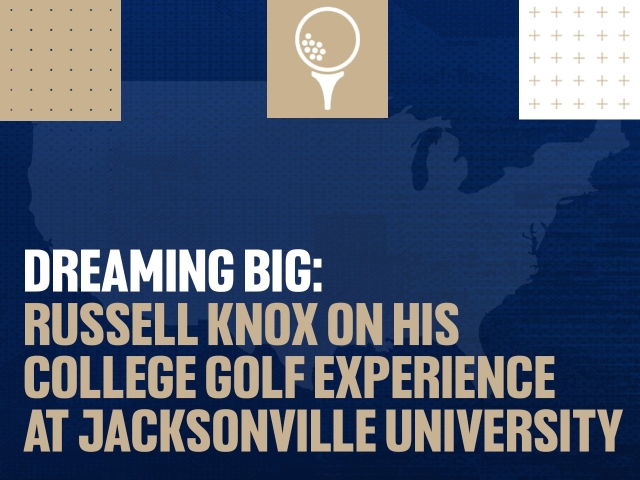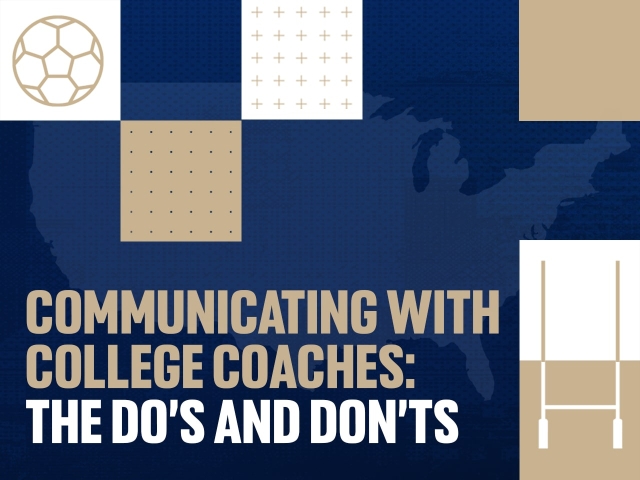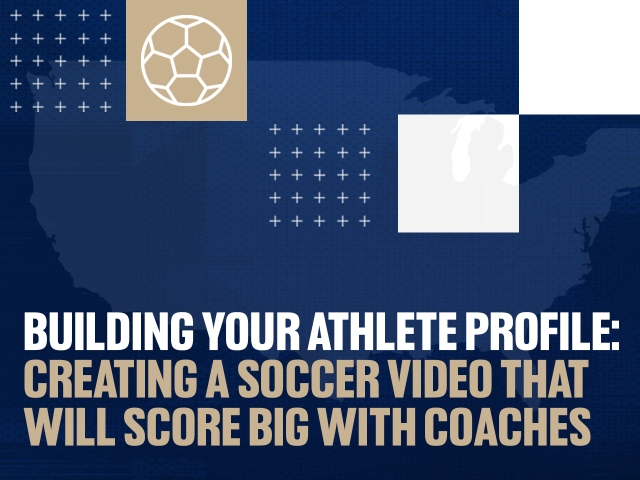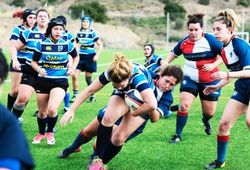The journey to securing a college sports scholarship is an exciting one, but a route that requires hard work, dedication and following a process. A key part of that process is effective communication with college coaches, and how you present yourself and interact can significantly influence their perception of you as a prospective student-athlete and potential fit for their team.
At FirstPoint USA, we’re here to guide you every step of the way and our latest blog aims to guide you in this important phase of your journey. We’ll give you and your family tips and hints on navigating communication with college coaches, ensuring you make a positive and lasting impression.
The Do's: Your Pathway to Positive Coach Connections
- Do Your Research (Athlete & Parent): Before reaching out, delve into the college's athletic program, academic offerings, the coach's background, recent team performance for your sport, and even the campus culture. This demonstrates genuine interest, it shows you have been proactive with your approach and allows for informed questions.
- Do Be Professional (Athlete): All communication should be formal and respectful. Use proper grammar and spelling in emails, speak clearly and politely on the phone, and maintain a professional demeanour in person. This reflects maturity and preparedness for the college environment.
- Do Be Prompt and Responsive (Athlete): Respond to emails and calls within 24-48 hours. If you need more time, acknowledge receipt and provide a realistic timeframe for your full response.
- Do Be Clear and Concise (Athlete): Coaches are busy individuals. Get straight to the point in your communication, clearly stating your interest in their program and why you believe you'd be a valuable addition.
- Do Highlight Your Strengths (Athlete): Showcase your athletic achievements, academic successes, and any leadership qualities. Back up your claims with statistics, video highlights, or specific examples. Avoid excessive boasting but be confident based on the evidence presented.
- Do Proofread Everything (Athlete & Parent): Before sending any written communication, meticulously check for typos and grammatical errors. A polished message demonstrates attention to detail.
- Do Follow Up Strategically (Athlete): If you haven't heard back after a reasonable timeframe, allowing 1 - 2 weeks for your initial outreach, a polite follow-up email is acceptable. Avoid bombarding coaches with multiple messages.
- Do Be Authentic (Athlete): Let your personality shine through while maintaining professionalism. Coaches want to get to know the real you, not just a robotic athlete.
- Do Express Gratitude (Athlete & Parent): Always thank the coach for their time and consideration, regardless of the conversation's outcome.
- Do Involve FirstPoint USA: Leverage your FirstPoint USA consultant's expertise! We can provide guidance on appropriate communication techniques and best practice, and help you craft and tailor effective messages.
The Don'ts: Avoiding Those Communication Pitfalls
- Don't Send Generic Emails (Athlete): Avoid sending mass emails that lack personalization. Coaches can easily identify these. Make sure you tailor each message to the specific program and coach, referencing your research.
- Don’t Get the Names Wrong: Please ensure that the name of the coach and university is correct. There’s nothing worse than receiving an email addressed to the wrong person or referring to the wrong program within your email. Find out the coach’s name at the college you are writing to and address it personally to them.
- Don't Make Excuses (Athlete): If you made a mistake during a game or have a lower grade in a particular subject, own it. Avoid making excuses or blaming others.
- Don't Be Demanding or Entitled (Athlete & Parent): Remember that coaches are evaluating numerous athletes. Avoid making demands or acting as if you are owed a scholarship or roster spot.
- Don't Provide Inaccurate Information (Athlete & Parent): Be completely truthful about your academics, athletic statistics, and eligibility status. Dishonesty will severely damage your credibility.
- Don't Over-Communicate (Athlete): While consistent communication is important, avoid sending excessive emails, texts, or calls. Respect that the coach has a busy schedule, and will receive hundreds or emails a week.
- Don't Ask Easily Searchable Questions (Athlete & Parent): Demonstrate initiative by researching basic information about the program online before asking questions.
- Don't Rely Solely on Social Media DMs for Initial Contact (Athlete): While social media can be a supplementary tool, initial formal communication should typically be through email.
- Don't Badmouth Other Programs or Coaches (Athlete & Parent): Maintain a positive and respectful attitude towards all programs you are considering.
- Don't Let Parents Dominate Communication (Athlete): While parental support is invaluable, the athlete should lead the communication process. Coaches are primarily recruiting you.
- Don't Forget to Say Thank You (Athlete & Parent): Failing to express gratitude leaves a negative impression.
Top 10 Questions for Athletes and Parents to Ask College Coaches:
Asking insightful questions demonstrates your engagement and helps you gather crucial information for your decision-making process. Here are ten key questions that you should consider:
- What is the academic support system like for student-athletes at your college/university? (Athlete & Parent) Shows you prioritize academic success
- Can you describe the team culture and the coaching philosophy? (Athlete) Helps understand the environment and coaching style
- What does a typical week look like for a student-athlete in your program, both in and out of season? (Athlete & Parent) Provides insight into time commitment and balance
- Where do you see me potentially fitting into your program and what are the areas where I can improve? (Athlete) Demonstrates coachability and desire to contribute
- What opportunities are there for athletic and academic development outside of regular practice and coursework? (Athlete & Parent) Explores resources for growth
- What is the process and timeline for official visits and scholarship offers? (Athlete & Parent) Clarifies the next steps in the recruiting process
- What are the academic requirements for eligibility and maintaining good standing within the program and the NCAA? (Athlete & Parent) Highlights understanding of NCAA regulations
- Beyond athletic ability, what qualities do you look for in your student-athletes? (Athlete & Parent) Shows you understand the holistic aspect of being a college athlete
- What are the team's goals and expectations for the upcoming season and the future of the program? (Athlete & Parent) Demonstrates interest in the program's success
- What are the next steps in the recruiting process from my end? (Athlete) Shows proactiveness and desire to move forward
Communication at Different Stages of your Journey:
For your initial outreach email, we recommend following the structure below:
- Keep it concise and personalized. Introduce yourself, mention your sport, graduation year, key athletic and academic achievements, and express specific interest in their program (referencing your research).
- Include a link to your athletic profile (e.g., FirstPoint USA profile) and highlight video. Make it easy for coaches to evaluate your abilities.
- Ask one or two thoughtful questions that demonstrate your research and genuine interest.
- Maintain a professional tone and impeccable grammar.
For your follow-up email, we recommend:
- If you haven't heard back after a reasonable time, send a polite follow-up. Reiterate your interest and briefly mention your continued progress or recent achievements.
- Avoid being pushy or demanding.
If you have scheduled a phone call with a coach, we recommend:
- Schedule a time that works for both parties. And be punctual.
- Prepare a list of questions beforehand. Have notes ready.
- Speak clearly and respectfully. Listen attentively to the coach's responses.
- The athlete should lead the conversation, with parents offering support and asking relevant questions when appropriate.
- Thank the coach for their time at the end of the call. Follow up with a thank-you email.
For in person and official visits, we recommend:
- Dress appropriately and be on time.
- Be engaged and enthusiastic. Ask thoughtful questions.
- Pay attention to the details of the facilities, campus, and interactions with the team and staff.
- Be respectful of the coach's time and the program's schedule.
- Follow up with a personalized thank-you note or email after the visit.
Communication Timelines
If it’s earlier in the recruitment cycle, a coach may not be ready to immediately make a formal offer or a place on their roster, and they may wish to follow your progress and get to you know over a period of 6 months or even a year or two. This will give them time to evaluate your personality and character to make sure you are the right fit for their culture.
As coaches are also looking at many candidates at a time, they may suggest some improvements they would like to see in your athlete development. If that’s the case, keep them updated with your progress, and when it’s appropriate, send them updated footage that shows you playing at a higher level, or new clips that highlight those improvements in your game. For certain sports, this may also involve statistics and/or scores.
The same can be said for academics (if it’s a highly selective school), so sending the coach updates in your GPA or SAT can keep them updated on your progress in the classroom.
All these elements combined can help develop your relationship with the coach, push you further up the coach’s recruitment board, and give them more clarity on your athletic and academic ability and show that you are serious about attending their college.
Each division will have different timelines for their recruitment process, and this will be important to know during an athlete’s recruitment journey, which FirstPoint USA will advise you on.
After you have committed, it is good practice to always take the time to message the coaches who have made you an offer, or you have spoken to in depth. Shows politeness and can help maintain relationships for the future. Coaches can often take new jobs elsewhere and you never know where you may speak to them again, or if you were transferring colleges, that could still be helpful in the future having coaches that really liked you.
FirstPoint USA is Your Partner in Communication:
Remember, you're not alone in this process. Your dedicated FirstPoint USA consultant will provide personalized guidance on developing effective communication strategies, reviewing your emails, and preparing you for phone calls and meetings. We're here to equip you with the tools and knowledge you need to make a positive impression and secure your dream college placement.
And by adhering to these do's and don'ts and asking insightful questions, you'll navigate your communication with college coaches confidently and effectively, bringing you one step closer to achieving your future athletic and academic goals!




